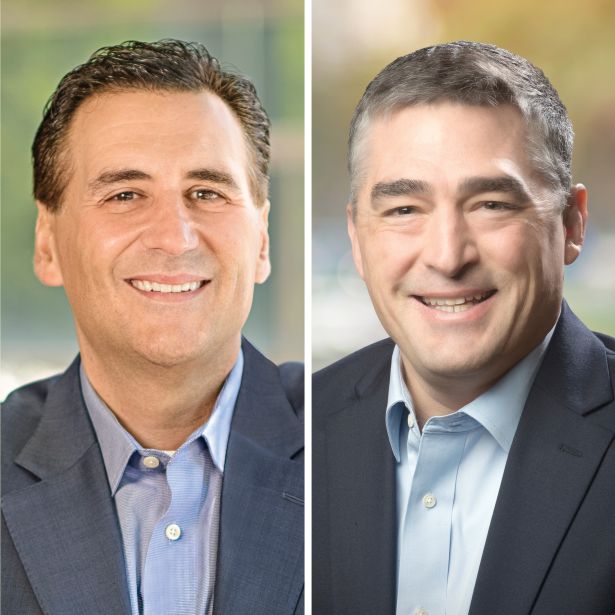
Patrick Ghilani and John Ensign
CEO; president and executive managing director for North America at MRI Software

Few real estate technology companies can say they have done something “for more than 50 years,” but digital giant MRI Software can.
“We have had a unique evolution to being able to leverage new technologies for solving difficult problems in real estate,” Patrick Ghilani, MRI’s CEO since mid-2014, said. “From day one we were client-centric and continue to be in order to solve our client’s most important problems, opportunities and needs. Technology is what we use to solve the problems, versus coming up with technology and looking for a problem.”
Historically aggressive in the area of proptech mergers and acquisitions in building its global platform, MRI has a huge tech toolbox to meet client needs.
Demonstrating its global acquisitiveness, since October 2022 has MRI acquired two Australia-based proptech companies for its platform: Loci Solutions, a real estate engineering consulting company, and PropTech Group, which provides tech solutions for independent and boutique real estate agencies. In addition, MRI acquired United Kingdom-based Springboard Research, which provides predictive analytics for retailers, shopping malls and downtowns using computer vision and AI; and South Africa-based TPN, a credit bureau specializing in vetting tenants for rental properties.
“There are a couple of big areas of focus we’ve had in 2023 that are just logical extensions of our being an open platform for the industry as opposed to a point solution,” said John Ensign, who leads MRI’s North American operations. “It’s not just about MRI’s products, but it’s about our partners’ or any third-party products that our clients may need to use.”
MRI continues to infuse artificial intelligence into its platform but doesn’t offer it to clients for its own sake, said Ensign. “It’s where can AI truly help our clients move forward and become more efficient, which is obviously something they’re very focused on in tougher economic times.”



